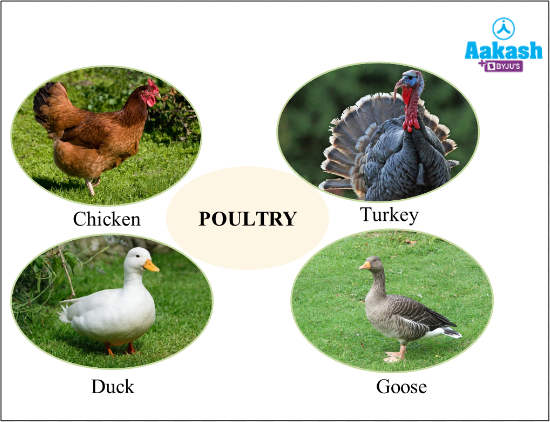Ph.D. in Animal Science: Introduction, Admission, Registration, Eligibility, Duration, Fees, Syllabus 2024

Introduction:
A Ph.D. in Animal Science specializing in Poultry offers a comprehensive exploration of avian biology, nutrition, genetics, and management. Designed for individuals aiming to lead advancements in poultry science and technology, this degree provides a platform for intensive research and practical experience in the field of poultry production, health, and sustainability.
Admission Process:
- Application Submission: Prospective students must submit a formal application through the university’s graduate admissions portal.
- Transcripts and Degrees: Submission of all relevant academic transcripts and evidence of a completed Master’s degree in a related field.
- Letters of Recommendation: Typically, three letters of recommendation are required, ideally from academic advisors or professionals in the field of animal science.
- Statement of Purpose: A detailed statement outlining the applicant’s research interests, career goals, and reasons for pursuing a Ph.D. in Poultry Science.
- GRE or Equivalent Tests: Some programs require the Graduate Record Examinations (GRE) scores, although this requirement can vary.
- Interviews: Most programs conduct interviews with potential candidates to assess fit and preparedness for the doctoral program.
Eligibility:
- Educational Background: A Master’s degree in animal science, biology, or a closely related field is usually necessary.
- Research Experience: Experience in research, particularly in areas related to poultry science, is highly beneficial.
- Academic Performance: Strong academic records, particularly in science and mathematics courses.
- Technical Skills: Proficiency in laboratory techniques, data analysis, and possibly experience with fieldwork relevant to poultry science.
Completion Time:
The typical timeline to complete a Ph.D. in Animal Science with a focus on poultry ranges from 4 to 6 years, depending on the student's research scope, dissertation complexity, and full-time or part-time enrollment status.
Career Opportunities:
- Academic Positions: University professorships or research positions, contributing to scientific knowledge and teaching.
- Industry Research and Development: Leading R&D projects in the poultry industry to develop new products or enhance production efficiency.
- Government Agencies: Working with agricultural extensions or regulatory bodies to improve poultry health standards and policies.
- Consultancy: Advising farms and businesses on best practices in poultry nutrition, genetics, and health management.
- Non-Profit Organizations: Engaging in research and advocacy related to food security, sustainable farming, and animal welfare.
Syllabus:
- Advanced Poultry Nutrition: In-depth study of nutritional requirements and feed formulation for optimal poultry health and production.
- Poultry Genetics and Breeding: Exploration of genetic principles applicable to poultry breeding and production.
- Disease Management in Poultry: Understanding diseases that affect poultry and methods for prevention and control.
- Reproductive Physiology: Study of avian reproductive systems and techniques to enhance reproductive efficiency.
- Poultry Housing and Environment: Designs and management practices for optimal poultry housing environments.
Internship Opportunities:
- Commercial Poultry Farms: Practical experience in managing day-to-day operations on advanced poultry farms.
- Research Institutions: Engaging in cutting-edge research projects, often in collaboration with universities or private companies.
- Governmental Organizations: Internships in agricultural departments focusing on policy development and implementation.
- International Organizations: Opportunities to work on global poultry projects with organizations like FAO or the World Animal Health Organization.
Scholarships and Grants:
- University Scholarships: Many universities offer scholarships specifically for Ph.D. students in animal sciences.
- Government Scholarships: Scholarships funded by the department of agriculture or education to promote advanced studies and research in poultry science.
- Private Foundations: Grants available from agricultural organizations and foundations interested in promoting sustainable poultry farming and research.
- International Grants: Funding opportunities for international students and projects, often aimed at improving global poultry practices.
FAQs:
What makes a Ph.D. in Poultry Science unique?
It focuses on advanced knowledge and research in the biology and management of poultry, addressing both theoretical and practical aspects.
What are the prerequisites for this program?
A master's degree in a related field, research experience, and strong academic records.
Can I work while completing this Ph.D.?
Many programs offer flexible or part-time options, but commitments to research might limit full-time employment.
What are the latest research trends in poultry science?
Current trends include improving genetic traits, enhancing disease resistance, and developing sustainable farming practices.
